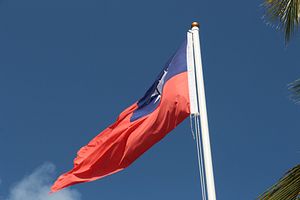The long-awaited inaugural summit between U.S. President Donald Trump and Chinese President Xi Jinping ended on April 7. The “Taiwan issue” was widely regarded as minor one on the agenda, and the White House’s pre-summit press conference confirmed that Trump would not emphasize the topic in the meeting. Also in a pre-summit briefing, Matthew Pottinger, the National Security Council’s senior director for Asia, stated that Washington would not trade Taiwan for China’s support on the North Korea issue.
To the relief of many in Taiwan, there was no joint statement after the summit. Nor was there any surprise regarding the “One China” policy in the press releases each side issued separately. But Beijing has always insisted that the “One China” policy is a prerequisite for meetings, rather than an issue to be discussed in meetings. Hence it is logical to guess that the pre-summit interactions hold more details about the Taiwan issue.
Indeed, in the months leading up to the summit, the Trump administration has become more reserved in elaborating on its support for Taiwan. In July 2016, the Republican Party’s campaign platform highlighted that the United States would continue its relations with Taiwan based on the Taiwan Relations Act (TRA). The platform also affirmed the Six Assurances given to Taiwan by the Reagan administration. In January 2017, Secretary of State-to-be Rex Tillerson, during his nomination hearings in Congress, pledged that the United States should reaffirm and live up to its commitments under the TRA and the Six Assurance.
However, on March 7, Acting Spokesperson of the State Department Mark Toner used the cliché that the United States has not changed its cross-Strait policy to avoid a question as on the role played by the Six Assurances in the “One China” policy under the Trump administration. Moreover, on April 5, an anonymous senior official at the White House made even clearer that the One China policy Trump has reaffirmed is based on the three communique and the TRA. Neither this statement by the White House, nor the one given a day later by Susan Thornton, the acting assistant secretary of state for East Asia and Pacific affairs, on the U.S. commitment to Taiwan mentioned the Six Assurances. This could mark a policy step back since July 2016.
In making sense of this shift of tone, we probably need to look into Trump’s personal approach to the summit with Xi. Despite being a vocal China-basher on the campaign trail, Trump was the quickest among all American presidents since George H. W. Bush to meet in person with, much less receive, a Chinese president in a bilateral context. All American presidents from Bill Clinton on have chosen to meet their Chinese counterparts once or several times on multilateral occasions prior to a formal one-on-one bilateral meeting. For instance, George W. Bush waited one year being inviting Jiang Zemin to his Prairie Chapel Ranch in Texas. It was two years after Barack Obama took office before Hu Jintao paid a state visit to the United States. Xi Jinping was formally invited to the Annenberg Estate in the first year of Obama’s second term. However, Trump hosted a summit with Xi after only three months in office. Wu Xinbo, a Shanghai-based Chinese scholar, indicated that this might be Trump’s own idea, one facilitated proactively by his team. Not to mention that the venue of the summit was Mar-a-Lago, Trump’s personal property. It would be difficult to arrange if Trump himself did not extend the invitation in the first place. And if Trump were eager to host the Chinese president, reiterating the One China policy would be a necessary first step.
As far as the Six Assurances are concerned, one main purpose was to assure Taiwan that arms sales would not be terminated by the August 17 communique of 1982. In particular, it provides as assurance that the United States would not consult Beijing prior to any arms sales to Taiwan. That being said, it is interesting to recall a March 14 report by the Washington Free Beacon. Citing an anonymous official at the Trump administration, the report revealed that the Trump administration was preparing a package of arms sales to Taiwan to replace another one that was supposed to be delivered in December 2016, but was shelved by the Obama administration. The report went on to note that the package will be made known after Trump’s meeting with Xi in early April. A similar report by Reuters further hinted that it may take months or well into next year for the proposed deal to overcome obstacles.
A low-profile deliberation about a possible arms sale to Taiwan prior to the Trump-Xi summit might have been designed to ease concerns over Trump’s overture to Beijing among both the domestic and international audience. Nonetheless, one cannot help to wonder how Tillerson could have avoided talking about the possible arms sales in Beijing, given that the proposal was leaked to the media a week ahead of his visit to China. It would be even harder to imagine that Xi would want to risk seeing a huge arms sale package to Taiwan announced right after his summit with Trump, or that Xi would be willing to make efforts on issues important to trade, whether on the trade front or on North Korea, with that prospect hanging overhead. Under the circumstances, the value of the Six Assurances under the Trump administration, at least the assurance that pledges to prevent prior consultation with Beijing on arms sales to Taiwan, might be called into question.
Chen-Dong Tso is Professor in the Department of Political Science at National Taiwan University. Gratiana Jung is currently a Ph.D. candidate in the Department of Political Science at National Taiwan University, and she also holds a full-time position as a senior political researcher at a renowned economic research institute in Taiwan.

































